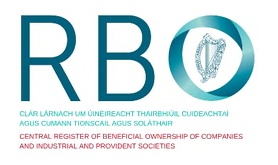
by John McCarthy Consulting Ltd. | Feb 9, 2023 | News
In recent days there has been some adverse media attention about Ireland’s Golden Visa programme, which in 2022, attracted a total of 1,316 applications. All but 41 of these came from China.
The official title of the programme is the Immigrant Investor Programme which offers residency in the State to non-Europeans, when they can prove they have personal wealth of at least €2 million. In return the are required to either:
- invest €1 million in an Irish business or
- make a €500,000 charitable donation or
- donate €400,000 in certain other cases.
Under current Irish AML legislation, the Criminal Justice (Money Laundering and Terrorist Financing) Acts 2010 to 2021, states that such investors are potentially ‘higher risk’ for AML purposes.
Higher risk clients trigger additional AML scrutiny known as ‘Enhanced Due Diligence’ (EDD) and the 10 most important Due Diligence steps to take are as follows:
- Additional background checks: These checks are accompanied by a more in depth investigation into the customer’s background.
- Source of funds and wealth: Investigate the funds to be used throughout the business relationship and the client’s total wealth, supported with documentary evidence, ideally sourced from independent credible sources.
- Independent verification: Seek independent verification of the customer’s identity documents and establish the integrity of any other supporting information provided.
- Increased monitoring: Increase the frequency and intensity of transaction monitoring to detect any suspicious activity as soon as possible.
- Third party validation: Obtain information from third party sources, such as credit reference agencies to verify the customer’s information and help better assess the risk.
- Obtain senior management approval: In the case of Politically Exposed Persons (PEPs) and similar cases, as Irish law requires, as well as reviewing the latest sanctions lists. It is important for senior management to understand the risk an entity undertakes.
- Limiting transactions: In certain circumstances, restrict the type and size of transactions the customer can conduct, or limit their access to certain services that your firm provides.
- Incoming funds: Require that the initial funds and the first transaction to be conducted through a financial institution attracts more intensive AML supervision.
- Ongoing customer reviews: Increase the frequency of subsequent customer reviews.
- In extreme cases: Choose to refuse the business with the customer if the risk of money laundering is too high and beyond your firm’s risk appetite.
After all the above, Each firm needs to assess, on an ongoing basis, whether it is really worthwhile dealing with such clients, given the costs of getting the AML risk assessment wrong, versus the benefits of being involved in such transactions.
For those of you still in the process of ISQM 1 implementation, please see our new ISQM TOOLKIT or if you prefer to chat through the different audit risks and potential appropriate responses presented by this new standard, please call or e-mail John McCarthy FCA or e-mail him at john@jmcc.ie.
We typically tailor training and brainstorming sessions to suit your firm’s unique requirements.
Publications and AML webinar:
- The ISQM TOOLKIT 2022 is available to purchase here.
- See our latest Anti-Money Laundering Policies Controls & Procedures Manual (March 2022) – View the Table of Contents click here.
- Also we have an updated AML webinar (March 2022) available here, which accompanies the AML Manual. It explains the current legal AML reporting position for accountancy firms and includes a quiz. Upon completion, you receive a CPD Certificate of attendance in your inbox.
- To ensure your letters of engagement and similar templates are up to date visit our site here where immediate downloads are available in Word format. A bulk discount is available for orders of five or more items if bought together.

by John McCarthy Consulting Ltd. | Feb 3, 2023 | News
As many audit firms will already be aware the International Standard on Quality Management 1 (ISQM 1) became effective on 15 December 2022. This is the implementation date from when they must document their System of Quality Management (SoQM).
As part of such a system, audit firms must assess the quality of any system components which have been sourced from external third parties.
Part of the confirmation process will involve the collection of statements from these external parties known as Supplier Quality Statements (SQS). We are only concerned here with those suppliers that may impact on audit quality such as (the list is not necessarily comprehensive) the following:
- training organisations providing CPD;
- providers of audit tools such as audit programmes and financial statements checklists;
- professional bodies;
- software and IT support suppliers;
- providers of technical checklists;
- technical advisers and
- audit file reviewers.
The collection of these Supplier Quality Statements will form part of each firm’s System of Quality Management (SoQM) and will need to be updated subsequently at regular intervals.
Have you sourced all the Supplier Quality Statements you need?
In case you ask, here is the one from John McCarthy Consulting Ltd.
For those of you still in the process of ISQM 1 implementation, please see our new ISQM TOOLKIT or if you prefer to chat through the different audit risks and potential appropriate responses presented by this new standard, please call or e-mail John McCarthy FCA or e-mail him at john@jmcc.ie.
We typically tailor training and brainstorming sessions to suit your firm’s unique requirements.
Publications and AML webinar:
- The ISQM TOOLKIT 2022 is available to purchase here.
- See our latest Anti-Money Laundering Policies Controls & Procedures Manual (March 2022) – View the Table of Contents click here.
- Also we have an updated AML webinar (March 2022) available here, which accompanies the AML Manual. It explains the current legal AML reporting position for accountancy firms and includes a quiz. Upon completion, you receive a CPD Certificate of attendance in your inbox.
- To ensure your letters of engagement and similar templates are up to date visit our site here where immediate downloads are available in Word format. A bulk discount is available for orders of five or more items if bought together.

by John McCarthy Consulting Ltd. | Jan 26, 2023 | News
The implementation deadline for the International Standard on Quality Management 1 (ISQM 1) was 15 December 2022 the date from which audit firms have their System of Quality Management (SoQM) documented and prepared.
As part of the implementation process audit firms are expected to record risks to audit quality, put in place appropriate responses and document the overall firm approach. This may best be done as a brainstorming session with senior audit personnel.
In certain cases it will be appropriate to involve non-audit Partners in the process, in so far as they provide non-audit services to audit clients, so that there is a complete understanding of the scope of the potential audit quality risks that may be present.
Essentially there are at least four steps involved:
- Work out the firm’s audit quality risks;
- Prioritise the risks depending on likelihood and impact;
- Agree the responses – take note that there are at least 18 pre-set responses in ISQM.34 that must be compulsorily dealt with or marked as ‘not applicable’ and then each firm may need to add their own specific risks.
Depending on the type and size of audit firm, there are likely to be a few risks that may be easily excluded e.g. if:
- Your firm is not part of an international network;
- It does not carry out groups audits as the Parent company auditor; and
- It does not act for Public Interest Entities).
- Devise tailored responses to the risks identified, ensuring these responses are effective and complete.
Spot check reviews by the professional bodies, on ISQM implementation, have already commenced, so the need to finalise these responses is urgent.
For those of you still in the process of ISQM1 implementation, please see our new ISQM TOOLKIT or if you prefer to chat through the different audit risks and potential appropriate responses presented by this new standard, please call or e-mail John McCarthy FCA or e-mail him at john@jmcc.ie.
We typically tailor training and brainstorming sessions to suit your firm’s unique requirements.
Publications and AML webinar:
- The ISQM TOOLKIT 2022 is available to purchase here.
- See our latest Anti-Money Laundering Policies Controls & Procedures Manual (March 2022) – View the Table of Contents click here.
- Also we have an updated AML webinar (March 2022) available here, which accompanies the AML Manual. It explains the current legal AML reporting position for accountancy firms and includes a quiz. Upon completion, you receive a CPD Certificate of attendance in your inbox.
- To ensure your letters of engagement and similar templates are up to date visit our site here where immediate downloads are available in Word format. A bulk discount is available for orders of five or more items if bought together.

by John McCarthy Consulting Ltd. | Jan 20, 2023 | News
Do you have clients with property interests in the UK, or who are about to acquire or recently sold property there? There is a registration deadline looming on 31 January 2023 which is only one week away!
Your clients will need to know much more about this new piece of UK legislation in order to avoid committing a criminal offence.
With effect from 1 August 2022 any overseas entity that wants to buy, sell, or transfer property or land in the UK, (i.e. freehold estates or a lease granted for a term of more than seven years) must register with UK Companies House. They must declare who their registrable beneficial owners or managing officers are before 31 January 2023. Entities that disposed of property or land after 28 February 2022 will also need to register and give details of that disposal.
The Economic Crime (Transparency and Enforcement) Act 2022 provides the legislative background to this new requirement designed to tackle money laundering. This legislation creates the Register of Overseas Entities.
The procedure for making registration applications is set out in the Register of Overseas Entities (Delivery, Protection and Trust Services) Regulations 2022 and the rules around verification are contained in the Register of Overseas Entities (Verification and Provision of Information) Regulations 2022 (2022/725).
The requirements for registration apply to property acquired in:
- England and Wales, since 1 January 1999;
- Scotland, since 8 December 2014 and
- Northern Ireland, since 1 August 2022.
Overseas entities that currently hold qualifying property have six months from 1 August to register with Companies House. Failure to register is a criminal offence.
The Department for Business, Energy and Industrial Strategy (BEIS) has produced some guidance for those who may undertake verification on behalf of an overseas entity.
Accountants take care
According to the ICAEW and the UK Law Society, because of the potential liabilities for incorrectly carrying out verification checks, it is critical for any accountants seeking to carry out this service for a foreign entity that they fully understand that the client due diligence (CDD) process usually carried out to comply with anti-money laundering regulations is not of the same standard required for verification of ownership of Overseas Entities.
The BEIS guidance highlights that “there are differences between what’s required under the UK Money Laundering Regulations (MLRs) by way of client due diligence and what is required by way of verification under the 2022/725 Regulations. As such, a relevant person cannot only do what they would normally do under the MLRs and as set out in related industry guidance. Relevant persons should refer to the Act, the 2022/725 Regulations and this guidance when conducting verification checks.”
The ICAEW has said ‘If a professional accountant undertakes verification and does not carry out the process correctly, then they open themselves up to criminal prosecution, regulatory sanctions, and liability for professional negligence.’
For those of you still in the process of ISQM1 implementation, please see our new ISQM TOOLKIT or if you prefer to chat through the different audit risks and potential appropriate responses presented by this new standard, please call or e-mail John McCarthy FCA or e-mail him at john@jmcc.ie.
We typically tailor training and brainstorming sessions to suit your firm’s unique requirements.
Publications and AML webinar:
- The ISQM TOOLKIT 2022 is available to purchase here.
- See our latest Anti-Money Laundering Policies Controls & Procedures Manual (March 2022) – View the Table of Contents click here.
- Also we have an updated AML webinar (March 2022) available here, which accompanies the AML Manual. It explains the current legal AML reporting position for accountancy firms and includes a quiz. Upon completion, you receive a CPD Certificate of attendance in your inbox.
- To ensure your letters of engagement and similar templates are up to date visit our site here where immediate downloads are available in Word format. A bulk discount is available for orders of five or more items if bought together.

by John McCarthy Consulting Ltd. | Dec 19, 2022 | Blog, News
As many are already aware, access to the RBO Register has recently been shut down, following an EU Court of Justice ruling.
Access to the Register of Beneficial ownership registry is only now being reopened to registered designated persons, which includes accountants in practice.
In order to gain access to the Register from now on, Designated Persons will need to appoint an authorised administrator register themselves, using a Form BEN3A1 Designated Persons Administration Declaration form (fillable online).
We suggest readers monitor the home page of the RBO for more information which will appear there as soon as it becomes available.
Meanwhile, for those of you still in the process of ISQM 1 implementation, please see our new ISQM TOOLKIT or if you prefer to chat through the different audit risks and potential appropriate responses presented by this new standard, please call or e-mail John McCarthy FCA or e-mail him at john@jmcc.ie.
We typically tailor training and brainstorming sessions to suit your firm’s unique requirements.
Publications and AML webinar
To ensure your letters of engagement and similar templates are up to date visit our site here where immediate downloads are available in Word format. A bulk discount is available for orders of five or more items if bought together.










